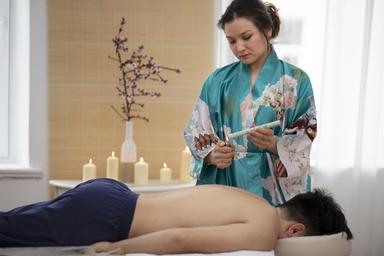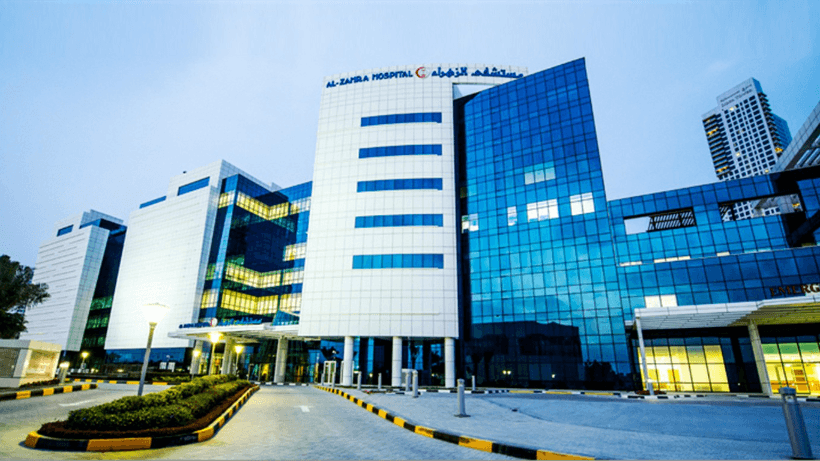
Importance of Early Detection: Mammograms in the UAE
30 Oct, 2023
 Healthtrip
HealthtripBreast cancer is a significant public health concern worldwide, and the United Arab Emirates (UAE) is no exception. In recent years, breast cancer has emerged as the most common cancer among women in the UAE, with its incidence on the rise. Fortunately, early detection remains a crucial tool in the fight against this disease. Mammograms, a specific type of X-ray used to examine breast tissue, play a pivotal role in identifying breast cancer at its earliest, most treatable stages. In this article, we will explore the importance of early detection through mammograms in the UAE, shedding light on the significance of regular screenings and the impact they can have on women's health.
Understanding the Burden of Breast Cancer in the UAE
Breast cancer is a pressing concern in the UAE, as it is one of the most frequently diagnosed cancers among women in the country. The burden is not only physical and emotional but also financial, as the cost of treating advanced-stage breast cancer is considerably higher than treating it in its early stages. This makes it imperative to shift the focus towards early detection and prevention.
Most popular procedures in India
The Role of Mammograms
Mammography is a well-established method for breast cancer screening. It is a non-invasive, low-dose X-ray that provides detailed images of the breast tissue. Mammograms are a critical tool in the early detection of breast cancer for several reasons:
1. Early Detection of Breast Cancer
Mammograms are renowned for their ability to detect breast cancer at an early, often asymptomatic stage. By capturing images of breast tissue, these X-ray screenings can identify abnormalities, including tumors, calcifications, or other signs of cancer, that are too small to be felt during a physical examination. Early detection is key to improving survival rates and the overall prognosis for women with breast cancer.
Wellness Treatments
Give yourself the time to relax
Lowest Prices Guaranteed!

Lowest Prices Guaranteed!
2. Screening for Asymptomatic Women
Mammograms are particularly valuable as a screening tool for asymptomatic women, those who exhibit no signs or symptoms of breast cancer. Regular screenings at recommended intervals can identify cancerous changes in the breast tissue before they manifest any noticeable physical symptoms.
3. Distinguishing between Benign and Malignant Abnormalities
Mammograms can differentiate between benign and malignant (cancerous) abnormalities in breast tissue. This distinction is vital for healthcare providers to determine the appropriate course of action, whether it is further diagnostic testing, additional imaging, or a biopsy to confirm the nature of the abnormality.
4. Guiding Treatment Planning
In cases where breast cancer is detected through mammography, the findings are crucial for guiding treatment planning. The size, location, and characteristics of the tumor are essential factors that inform decisions about surgery, chemotherapy, radiation therapy, and other treatments.
5. Monitoring High-Risk Populations
For women at higher risk of developing breast cancer due to family history, genetic mutations, or other risk factors, mammograms play a vital role in ongoing monitoring. Regular screenings can help identify cancer in its earliest stages, allowing for timely intervention and reducing the risk of advanced cancer.
6. Evaluating Treatment Effectiveness
Mammograms are not only a tool for initial detection but also for assessing the effectiveness of breast cancer treatments. Follow-up mammograms can determine if the tumor has responded to treatment or if further intervention is required.
7. Research and Data Collection
Mammograms contribute to the wealth of data used in breast cancer research. This data enables scientists and healthcare professionals to develop more advanced detection techniques and better understand the disease, ultimately leading to improved patient care and outcomes.
8. Raising Awareness and Encouraging Regular Screenings
Mammograms are instrumental in raising awareness about breast health and the importance of regular screenings. They serve as a tangible reminder for women to take control of their breast health and undergo routine mammograms as recommended, ultimately fostering a culture of early detection and prevention.
The Mammography Procedure: A Step-by-Step Guide
Mammography is a crucial tool for early breast cancer detection, and understanding the procedure is vital for women considering or scheduled for this screening. Here, we provide a step-by-step guide to demystify the mammography process:
Step 1: Scheduling the Appointment
The first step in the mammography procedure is scheduling an appointment with a healthcare provider or a dedicated mammography center. Most women begin regular mammograms between the ages of 40 and 50, but your doctor will advise you on the appropriate schedule based on your risk factors and medical history.
Step 2: Preparing for the Examination
Before the mammogram, it's essential to be well-prepared. Here are some key points to keep in mind:
- Attire: Wear a two-piece outfit, as you will need to undress from the waist up for the examination. Avoid wearing deodorant, talcum powder, or lotions, as these can interfere with the quality of the images.
- Inform the Technologist: If you are pregnant or breastfeeding, inform the technologist, as alternative screening methods may be necessary.
- Medical History: Be prepared to discuss any breast-related concerns, prior surgeries, or family history of breast cancer with the healthcare provider.
Step 3: The Mammogram Room
When you arrive at the mammography center, you'll be led to a private room with a specialized mammography machine. The room is typically dimly lit to ensure the lowest possible radiation exposure.
Step 4: Breast Positioning
During the mammogram, you'll be asked to stand in front of the machine. The technologist, who is trained to perform mammograms, will position your breast on a clear plastic plate. A second plate will then be lowered to compress the breast gently. Compression is necessary to spread out the breast tissue, reduce radiation exposure, and ensure clear images. While compression can be uncomfortable, it is usually brief and essential for accurate results.
Step 5: Image Capturing
Once your breast is properly positioned and compressed, the mammography machine will capture images. Usually, two images are taken of each breast – one from top to bottom and one from side to side. These images allow the radiologist to examine the breast tissue from different angles.
Step 6: Repeat for the Other Breast
The same procedure is repeated for the other breast.
Step 7: Waiting for Results
After the mammogram is complete, you will typically be asked to wait briefly while the images are reviewed for quality. In some cases, additional images may be required if any part of the breast tissue needs further examination. However, most women receive their results within a few days.
Step 8: Receiving the Results
You will receive your mammography results from your healthcare provider. If the results are normal, this is reassuring, but it's important to continue regular screenings as recommended by your doctor. If any abnormalities are detected, further testing, such as a diagnostic mammogram, ultrasound, or biopsy, may be necessary to confirm or rule out cancer.
Step 9: Follow-Up
Regular mammograms are part of an ongoing commitment to breast health. Whether the results are positive or negative, it's crucial to follow the guidance of your healthcare provider and continue regular screenings according to the recommended schedule.
The Crucial Importance of Early Detection in the UAE
Mammograms, a specialized X-ray of the breast, offer numerous advantages in the context of the United Arab Emirates (UAE), a nation where breast cancer is a significant health concern. Here are the key benefits of mammograms in the UAE.
1. Improved Treatment Outcomes:
Early detection of diseases, such as cancer, often leads to more effective treatment options. When diseases are identified at an early stage, they are typically easier to treat, and the prognosis is generally more favorable. For breast cancer, this means smaller tumors, less aggressive treatments, and a higher likelihood of a full recovery.
2. Reduced Healthcare Costs:
Treating diseases at an advanced stage is not only more challenging but also more expensive. Advanced disease often necessitates more aggressive treatments, longer hospital stays, and more frequent doctor visits. Early detection can significantly reduce the financial burden on both the healthcare system and individual patients.
3. Enhanced Quality of Life:
Early detection not only improves survival rates but also preserves a higher quality of life for patients. It can help avoid the physical and emotional toll of aggressive treatments like chemotherapy and extensive surgeries. This is particularly important for chronic diseases like cancer, where long-term quality of life is a significant concern.
4. Preventative Measures:
Early detection often enables the implementation of preventive measures, lifestyle changes, and interventions to halt or slow disease progression. In the case of breast cancer, early detection can lead to the identification of pre-cancerous conditions, allowing for interventions that prevent the development of invasive cancer.
5. Personalized Healthcare:
Early detection allows for personalized healthcare plans. When diseases are detected at an early stage, healthcare providers can tailor treatment approaches to each patient's unique needs, considering factors such as age, family history, and genetic makeup.
6. Public Health Benefits:
On a broader scale, early detection contributes to better public health outcomes. It helps control the spread of infectious diseases, reduces the incidence of advanced-stage diseases, and enhances the overall well-being of the population. In the UAE, this is particularly important given the nation's commitment to providing high-quality healthcare services.
7. Screening Programs and Awareness:
Early detection is promoted through screening programs and awareness campaigns. The UAE has made efforts to encourage regular screenings, such as mammograms for breast cancer, which not only detect the disease early but also serve as a platform for educating women about the importance of early detection.
Mammogram Costs and Considerations in the UAE
When considering a mammogram in the United Arab Emirates (UAE), there are several important factors to take into account, including costs and various considerations that can impact your experience. Here's a breakdown of mammogram costs and key considerations in the UAE:
Mammogram Costs
The cost of a mammogram in the UAE can vary depending on several factors, including the healthcare provider and the type of mammogram. Here's a rough estimate of the costs you might encounter:
1. Basic Mammogram:
- Cost: Approximately AED 200-300
2. 3D Mammogram (Tomosynthesis Mammogram):
- Cost: Around AED 400-600
Considerations for Getting a Mammogram in the UAE
Before scheduling a mammogram in the UAE, consider the following factors:
1. Insurance Coverage:
- Most health insurance plans in the UAE cover mammograms for women over the age of 40. However, it's crucial to verify your insurance coverage by contacting your insurance provider. Understand the specific terms and conditions related to mammogram coverage in your policy.
2. Healthcare Provider:
- Choose a healthcare provider that is accredited by the Joint Commission International (JCI). This accreditation ensures that the provider adheres to international standards of quality and safety.
3. Type of Mammogram:
- There are two primary types of mammograms: basic mammograms and 3D mammograms. While basic mammograms are less expensive, 3D mammograms can offer improved accuracy in breast cancer detection. Discuss with your healthcare provider which type is appropriate for your specific situation.
4. Preparation:
- Mammograms typically require no special preparation. However, it's essential to inform your doctor if you are pregnant or breastfeeding, as there may be additional considerations in such cases.
5. What to Expect:
- A mammogram is a quick and relatively painless procedure. During the examination, a technician will position your breast on the mammogram machine and take X-ray images. You may experience some pressure on your breast, but it should not be overly painful.
6. Results:
- Following the mammogram, the results will be sent to your healthcare provider. Your doctor will contact you to discuss the findings and, if necessary, schedule further tests or treatments.
Additional Considerations
In addition to the above considerations, here are some other practical aspects to keep in mind when planning your mammogram in the UAE:
1. Language:
- Many healthcare providers in the UAE offer services in both English and Arabic. Confirm the availability of your preferred language with the provider in advance.
2. Transportation:
- If you are unable to drive yourself to and from your mammogram appointment, it's advisable to arrange for transportation in advance. Some healthcare providers offer transportation services for their patients.
3. Childcare:
- If you have young children, you may need to arrange for childcare during your mammogram appointment. Certain healthcare providers may offer childcare services for their patients, so inquire about this in advance.
Taking these factors into account can help ensure a smooth and stress-free experience when getting a mammogram in the UAE, contributing to the early detection and potential prevention of breast cancer
Mammogram Challenges in the UAE:
In the United Arab Emirates (UAE), mammograms are integral to the nation's healthcare strategy for addressing the growing concern of breast cancer. The utilization of mammography as a breast cancer screening tool has grown in prominence over the years, but challenges remain. This section delves into the current landscape of mammograms in the UAE and the challenges that need to be addressed.
1. Increasing Awareness and Accessibility
While the awareness of mammograms is gradually increasing in the UAE, there is still room for improvement. Many women are not well-informed about the necessity of regular mammograms. Raising awareness through public health campaigns and healthcare providers is imperative to ensure that women are educated about the significance of early detection.
Moreover, accessibility to mammogram facilities is essential. The UAE has made significant strides in expanding healthcare infrastructure, but there is a need to ensure that mammogram facilities are available throughout the country, including in remote areas. Geographical and financial barriers should not hinder women from undergoing these vital screenings.
2. Cultural and Social Stigma
Cultural and social norms can play a significant role in women's willingness to undergo mammograms. In some communities, discussing breast health and undergoing mammograms may still be considered taboo or uncomfortable. Addressing this stigma is crucial in encouraging open dialogue about breast cancer and mammogram screenings. Culturally sensitive educational campaigns can help break down these barriers and create an environment where women feel comfortable seeking early detection.
3. Affordability and Insurance Coverage
The cost of mammograms can be a deterrent for some women, particularly those without adequate healthcare coverage. Comprehensive insurance policies that cover regular mammograms can significantly reduce this financial barrier. Encouraging insurance providers to include mammograms in their coverage is a vital step in ensuring that all women, regardless of their socioeconomic status, can access these screenings.
4. Risk Assessment and Personalized Screening Plans
In the UAE, the healthcare system should integrate risk assessment into breast cancer screening programs. Women with a family history of breast cancer or other risk factors should have personalized screening plans that take into account their unique circumstances. This approach ensures that the timing and frequency of mammograms are tailored to each woman's specific needs.
5. Embracing Technological Advancements
The UAE should actively embrace technological advancements in mammography. Digital mammography, 3D mammography (tomosynthesis), and computer-aided detection (CAD) are promising technologies that can enhance the accuracy of breast cancer detection. These technologies should be integrated into the healthcare system to provide women with the most advanced and precise screenings.
6. Government Initiatives and Collaborative Healthcare
Government initiatives are vital in promoting regular mammogram screenings in the UAE. National breast cancer screening programs, along with awareness campaigns, can encourage women to participate in early detection efforts. Collaboration between healthcare providers, community organizations, and the government is essential to make mammograms widely accessible and culturally sensitive.
The Way Forward:
As the importance of mammograms for breast cancer screening becomes increasingly evident, it is crucial to continue and enhance efforts in promoting this valuable diagnostic tool in the United Arab Emirates (UAE). Here are the steps and strategies that can shape the way forward in raising awareness and increasing mammogram uptake:
1. Education and Awareness Campaigns
- Public Awareness Initiatives: Launch and support public awareness campaigns that educate women in the UAE about the significance of mammography in breast cancer detection. These campaigns should target women of all ages and backgrounds and emphasize the benefits of early detection.
- Community Outreach: Engage with communities, schools, and workplaces to provide information about breast health, self-examinations, and the importance of regular mammograms. These outreach programs can help dispel myths and misconceptions.
2. Cultural Sensitivity and Modesty
- Cultural Awareness: Address cultural and religious sensitivities by highlighting the confidential and modest nature of mammography procedures. Provide women with reassurance that their cultural values will be respected during screenings.
3. Access to Healthcare Services
- Widespread Access: Expand access to mammography services, particularly in remote or underserved areas of the UAE. Utilize mobile screening units and community-based clinics to make mammograms accessible to all.
- Affordability: Continue government initiatives and health insurance coverage to reduce financial barriers, ensuring that mammography remains an affordable option for all women in the UAE.
4. Empowerment and Education
- Patient Empowerment: Empower women in the UAE to take an active role in their breast health. Encourage them to discuss mammograms with their healthcare providers, perform regular self-examinations, and seek early medical attention if they notice any abnormalities.
- Health Education Programs: Invest in educational programs that equip women with the knowledge and skills to recognize breast cancer symptoms and the importance of mammograms.
5. Quality Assurance
- Maintain High Standards: Implement and uphold stringent quality assurance measures to ensure the accuracy and reliability of mammography results. This helps reduce the risk of false positives or false negatives and builds trust in the screening process.
6. International Collaboration
- Knowledge Exchange: Collaborate with international organizations and experts to bring new knowledge, technologies, and best practices to the UAE's healthcare system. This exchange of knowledge can significantly benefit breast cancer prevention and early detection efforts.
7. Patient Navigation and Support
- Comprehensive Care: Offer comprehensive patient navigation services to guide women through the entire process, from initial screenings to post-diagnosis support. A well-structured healthcare system ensures that women receive the care they need promptly.
8. Research and Innovation
- Invest in Research: Support research into breast cancer and mammography technology. The UAE's commitment to cutting-edge medical technology positions it well for advancements in early detection methods and tools.
By adopting these strategies, the UAE can further solidify its commitment to promoting mammograms and breast health. The way forward involves a collective effort that requires the active involvement of healthcare professionals, government bodies, non-governmental organizations, and society as a whole. Regular mammograms are not just a medical procedure; they are a lifeline that offers hope, early intervention, and a better future for women facing the challenges of breast cancer.
Conclusion
Mammography is a cornerstone in the fight against breast cancer, and its importance in the UAE cannot be overstated. Regular screenings can save lives, reduce the emotional and financial burden of advanced-stage cancer, and improve the overall health and well-being of women in the UAE. By addressing the challenges and continuing to raise awareness, the UAE can make significant strides in the early detection and prevention of breast cancer, ultimately improving the lives of its female population. It is crucial for women in the UAE to take charge of their health by scheduling regular mammograms and for the healthcare system and society at large to support them in this essential endeavor.
Read Also Breast Cancer Treatment in the UAE: (healthtrip.com)
Related Blogs

Getting a Second Medical Opinion from Indian Doctors – 2025 Insights
Explore getting a second medical opinion from indian doctors –
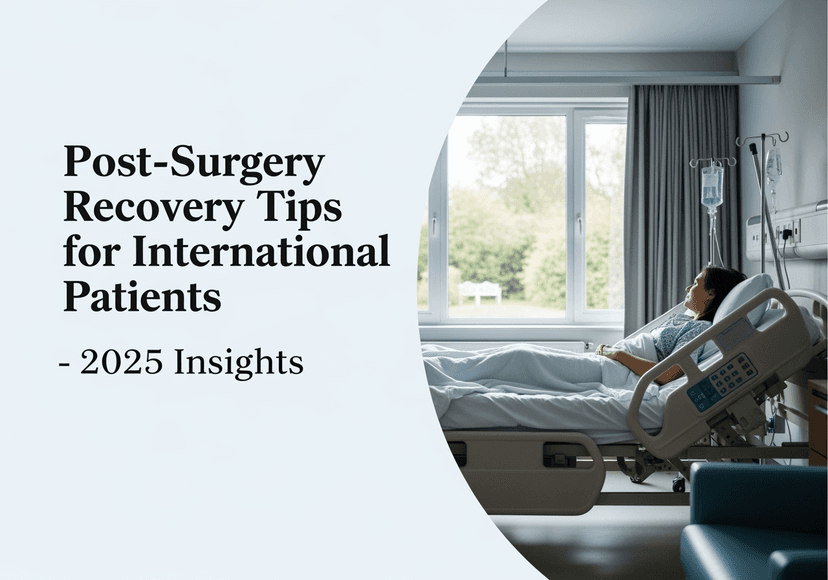
Post-Surgery Recovery Tips for International Patients – 2025 Insights
Explore post-surgery recovery tips for international patients – 2025 insights

Best Countries for Affordable Healthcare in 2025 – 2025 Insights
Explore best countries for affordable healthcare in 2025 – 2025

Traveling from UAE to India for Surgery: What You Should Know – 2025 Insights
Explore traveling from uae to india for surgery: what you
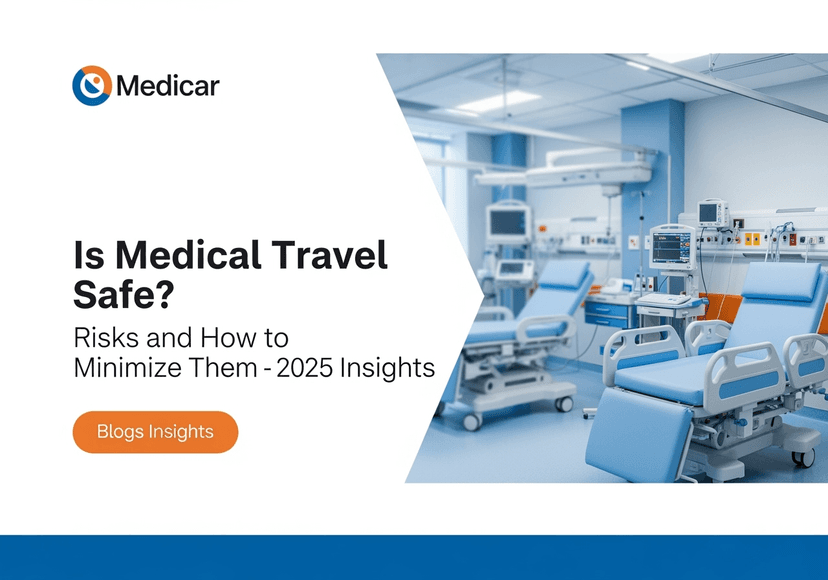
Is Medical Travel Safe? Risks and How to Minimize Them – 2025 Insights
Explore is medical travel safe? risks and how to minimize
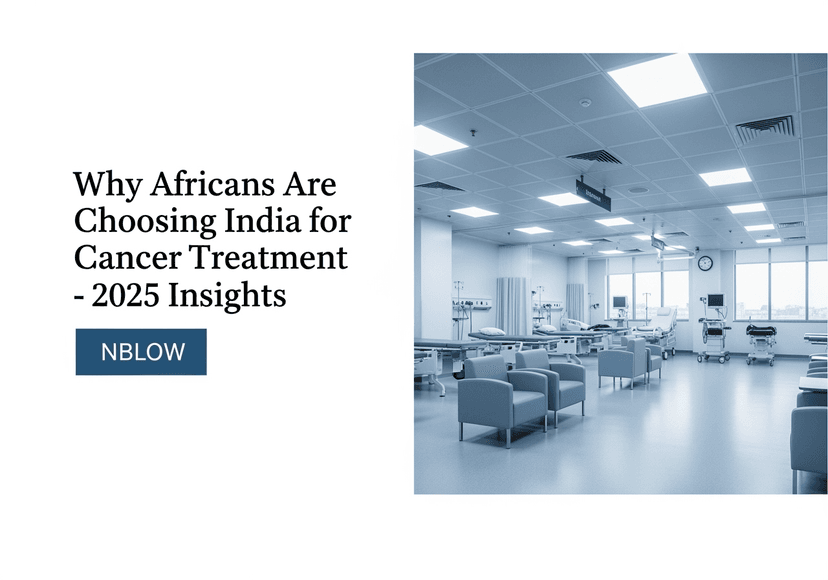
Why Africans Are Choosing India for Cancer Treatment – 2025 Insights
Explore why africans are choosing india for cancer treatment –






